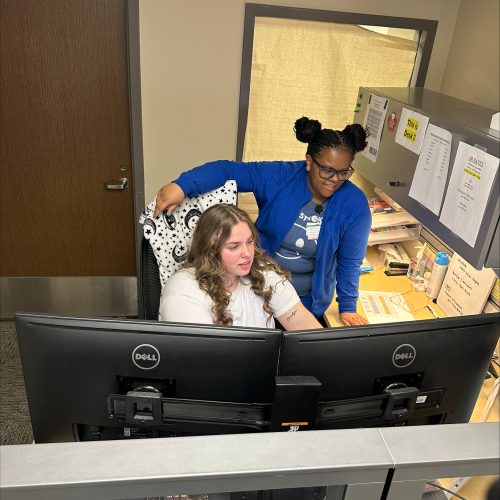
Last year was the twentieth anniversary of the Institute for Digital Health & Innovation’s (IDHI) High-Risk Pregnancy Program (HRPP) at the University of Arkansas for Medical Sciences. In the decades of its existence, the HRPP has built a model of success so robust that leaders from other states and other nations have made site visits to Arkansas with hopes of replicating this type of maternal health in their own communities.
“When the High-Risk Pregnancy Program first started out, online education was limited, resources were few and far between, and reliable, high-speed, internet access was scarce in several parts of the state,” says Joseph Sanford, MD, director for IDHI. “Today, with the growth of infrastructure and technology, we have capabilities of reach and care that covers the entire state and beyond.”
Twenty years ago, the infant mortality rate in Arkansas was 9.8 deaths per 1000 live births. Since the creation of the HRPP, that number has continued to decline. According to the HRPP’s Research and Evaluation team, as of 2020, the infant mortality rate is 4.5 deaths per 1000 live births.
Not only does the HRPP offer direct care through offices and clinics (UAMS Call Center, Women’s Mental Health, Diabetes Care in Pregnancy), it also offers several educational resources and programs:
- Outreach & Continuing Education. The Community Outreach Education team provides continuing education through multiple programs:
- STABLE (Sugar and Safe Care, Temperature, Airway, Blood Pressure, Lab Work, and Emotional Support)
- Neonatal Resuscitation Program
- Fetal Heart Monitoring
- Obstetric Patient Safety Training
- Simulation Training
- Online Education. Learning opportunities through LearnOnDemand.UAMS.edu and PatientsLearn.UAMS.edu reach all 75 counties in Arkansas and beyond with 7,514 registered users.
- MFM Guidelines. Last year, the Guidelines for Best Practices, a resource combining maternal-fetal medicine and neonatology, had 18,452 page views from all 50 states and 38 other countries.
“Our High-Risk Pregnancy Program leverages advanced technology to provide comprehensive support and medical expertise,” says Rosalyn Perkins, MNSc, APRN, WHNP-BC, APRN Coordinator and High-Risk Pregnancy Program Director, “ensuring the best possible outcomes for both mother and baby, particularly in complicated pregnancies.”
Find out more about the High-Risk Pregnancy Program:






